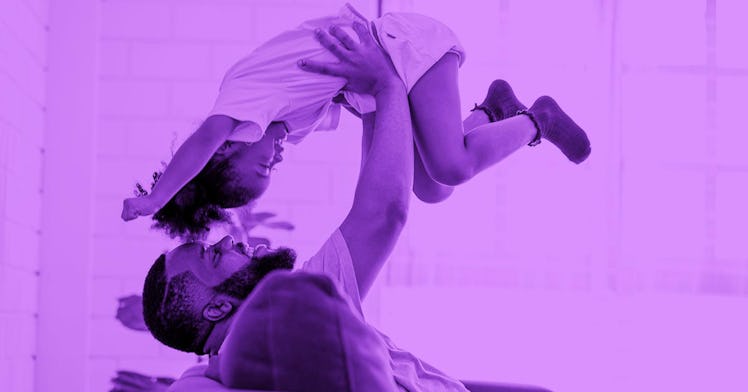It’s Time to Celebrate Fathers More Broadly in Our Attitudes and Our Policies
Dr. Mark A. Schuster, pediatrician and father of two, argues that we can do much better when it comes to supporting parents and families of all kinds.

Flying with young children has always been a high-wire act. You spend hours in an enclosed space with hundreds of strangers, your adorable yet unpredictably fussy child, and no way to escape. But grandparents need to be visited, which is how my husband and I found ourselves on a cross-country flight with our infant twins.
The boys were quiet for nearly the entire trip but eventually one of them started crying. As I began to comfort him, a woman across the aisle jumped up and tried to take him from me, announcing — with no warmth but lots of authority — “I’m a mother. I know how to do this.”
Excuse me?
There’s no denying that women disproportionately bear the burden of caregiving, made all the more evident during the pandemic, which has had an incredible impact on mothers. But regardless of whether they are in same-sex or opposite-sex relationships — or are single parents — dads taking care of kids are still being subjected to comments like: “On parent duty today?” Or, “I see Daddy’s babysitting!”
Although the vast majority of societal pressure still falls on mothers, many fathers feel judged for their parenting, with nearly a quarter of dads reporting being omitted from communications about their children, and 12% reporting medical professionals assuming that they weren’t knowledgeable about their children’s health.
We can do much better when it comes to supporting parents and families of all kinds.
This story was submitted by a Fatherly reader. Opinions expressed in the story do not necessarily reflect the opinions of Fatherly as a publication. The fact that we’re printing the story does, however, reflect a belief that it is an interesting and worthwhile read.
First, let’s stop commenting on fathers — and, for that matter, mothers — when they are out with their children. Remarks like, “Giving Mom a break, are we?” reinforce harmful stereotypes about women’s and men’s roles as well as assumptions about the structure of families. If we want dads to do their fair share of parenting, we should treat their caretaking as a norm, not an outlier. Family caregiving has shifted significantly, with many more men acknowledging that caregiving should be divided evenly. That doesn’t mean men always know what “even” looks like — but still, from 1965-2008, the time men reported spending on childcare more than tripled.
Second, there is a big gap in scientific research on fathers. Strong evidence supports that fathers play a critical role in children’s language and social development, but all too often, researchers fail to investigate or even mention fathers in their studies. The need to strengthen research on fathers was one of the major findings of a National Academy of Medicine committee, on which I served, examining ways to better support parents of young children.
Medical practitioners, especially we pediatricians, should also be more conscientious about including fathers in their children’s health care. Pediatricians spent significantly less time relaying information in visits where children were accompanied by fathers only. It’s pretty irksome to show up in urgent care and be dismissively asked to “Call Mom” for your child’s immunization info — especially when the record shows the child in question has two dads, and one of them (me) is a pediatrician.
Day-to-day changes can make a difference, too. Instead of holding “Muffins with Moms” events, schools can help all caregivers feel included in classroom activities. More baby-changing stations are available in men’s and single-stall restrooms, but these amenities are far from universal. Our public spaces should be designed so all parents can tend to their children’s needs safely and privately.
Finally, we need to make it easier for fathers to be a part of their children’s lives, including enabling them to take time off from work when they become a parent or their child is sick.
The COVID-19 pandemic forced tens of millions of families to try to simultaneously work full-time and parent full-time — a literally impossible task that data show us disproportionately burdened mothers. But as a result, public pressure is mounting for the government to take action, with nearly 200 businesses calling on Congress to enact a paid family and medical leave law.
Policymakers should make sure that a national paid family leave program incorporates the role of fathers and non-primary caregivers. Things may change soon in the U.S., as the Biden Administration’s American Families Plan proposes $225 billion for sliding scale child care subsidies for low and middle-income families and $225 billion for paid family and medical leave with partial wage replacement of up to 12 weeks.
This Father’s Day, let’s commit ourselves not just to celebrating fathers, but to normalizing fatherhood more broadly in our attitudes and our policies. That’s what’s best for parents of any gender — and it’s what’s best for our children, too.
Mark A. Schuster is a pediatrician, father of two, and Dean of the Kaiser Permanente Bernard J. Tyson School of Medicine.